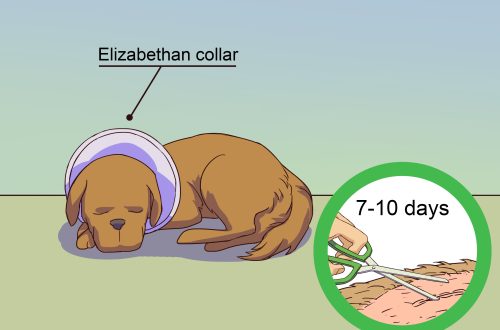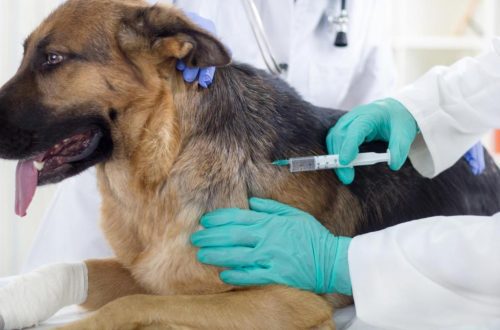
Neurotic dog
Currently, the number of neuroses in dogs is on the rise. Studies conducted in the USA show that the vast majority of dogs can be called neurotic. We have not conducted such studies (yet). But more and more owners around the world are turning to specialists with complaints that the dog is “nervous”.A dog (especially a nervous one) needs to be understood. This is extremely important for her well-being and for our comfort.
Contents
Why does a dog become neurotic
In the modern world, dogs are under pressure almost every minute. They are forced to solve various kinds of tasks, sometimes straining both physical and intellectual capabilities to the extreme. When a puppy is born, he has no problems. They show up later. Say, 5 minutes after birth. The baby wants to eat. However, when he seeks to get to the source of life-giving milk, he first encounters the cruelty of the world around him – merciless competition. Because he’s not the only one so hungry. And this is only the beginning of the upcoming series of hardships and hardships! A man makes tough demands on a dog. He considers her a “man’s friend”, although the opposite is true for a dog: a man is not only the best friend, but also God. The four-legged friend is forced to rely on our mercy, and we look at the fluffy tailed creature from top to bottom. Dogs are completely defenseless against our arbitrariness. We regulate their nutrition, physical activity, the surrounding reality. And if one of the systems fails (stress – acute or chronic, overwork, fear, beriberi, infection or intoxication, endocrine disorders, unfavorable psychological climate in the family, insufficient or excessive socialization, etc.), the dog can become neurotic. And in the process of communicating with her, the owner also becomes neurotic.
depression in dogs
One of the causes of neurosis can be called depression. It is unlikely that a person who is familiar with at least one dog will deny that they are extremely emotional creatures. Dogs experience almost the same range of emotions that we do (with a few exceptions). In any case, they grieve and rejoice no less passionately than people. It is rather difficult to diagnose depression in dogs, since its signs are similar to the symptoms of physiological diseases, and four-legged friends cannot yet tell what is in their souls. But if the dog is lethargic, lethargic, shows no interest in food and games, you should contact your veterinarian. Veterinary diagnostics will distinguish depression from, for example, parvovirus enteritis. The causes of depression are different. For example, a change of owner (and this applies even to pets taken from shelters!), the departure or loss of one of the members of the “pack” (not necessarily the “main” owner), separation from another animal or, conversely, the appearance of a new household, too strict restrictions freedom or physical trauma. It happens in dogs and seasonal depression (especially in winter, when walks are reduced), and postpartum (caused by changes in hormonal levels).
Manifestations of neurosis in dogs
A neurotic dog becomes irritable, depressed or overly excited, shows aggression without a seemingly compelling reason or gets scared “out of the blue”. or clogs into the farthest corner and trembles there with a small shiver. The dog shudders in a dream or does not sleep at all, sometimes loses its appetite, can constantly lick a certain part of the body. , coordination of movements is sometimes disturbed. Some dogs gnaw (or eat) inedible objects, spoil things. Sometimes they can do their natural necessities in the house. It happens that animals make sounds similar to hysterical barking or howling. Sometimes increased salivation or an unpleasant odor indicates stress. Wool can fade and even fall out, allergies or dandruff appear. A neurotic dog is poorly trained.
Can you help a neurotic dog?
First of all, you need to contact your veterinarian. An important component of treatment is the appointment of multivitamins (intravenously), in particular, the dog should receive nicotinic acid and B vitamins. The pet must be provided with peace. Sleep can have a healing effect on a four-legged friend. If the disease has physiological, and not just psychological causes, immunomodulators and anti-inflammatory drugs are sometimes prescribed. If the cause lies in depression, he will prescribe antidepressants. Do not let your pet walk unattended, strengthen his immunity, provide proper care and feasible, but at the same time sufficient physical activity, full feeding, vaccinate on time. Try to diversify walks, but at the same time carefully monitor dog reaction. If she obviously doesn’t like such experiments, it’s better to refuse them for now. Demonstrate constant, but not too violent and intrusive signs of attention. pet and minimize damage. Maintain your lifestyle as much as possible, provide access to your favorite toys, innovate gradually. For example, if you’re moving, it’s a good idea to take the animal for a walk or two to a new location. If you’re going to visit a groomer, you can give your dog a light herbal sedative. friend at the moment of fright and not to persuade her to calm down. Otherwise, the pet will think that it is encouraged precisely for fearfulness and will become even more afraid. Remain calm and act as if nothing terrible is happening. Patience and more patience. Remember that a dog does not become neurotic from scratch. We, people, in most cases, had a hand in this, but we also provide “smaller brothers” with help. Do not praise other dogs in the presence of your pet, do not stroke them. Remember dog jealousy. It is important to understand that neurosis is not a sentence. You can make life easier for the dog, for yourself, and for those around you. The main thing is not to give up and not despair. If you can’t help your pet on your own, you should contact competent specialists.





